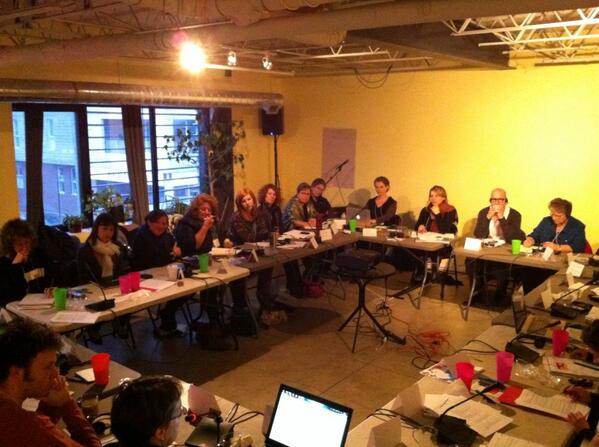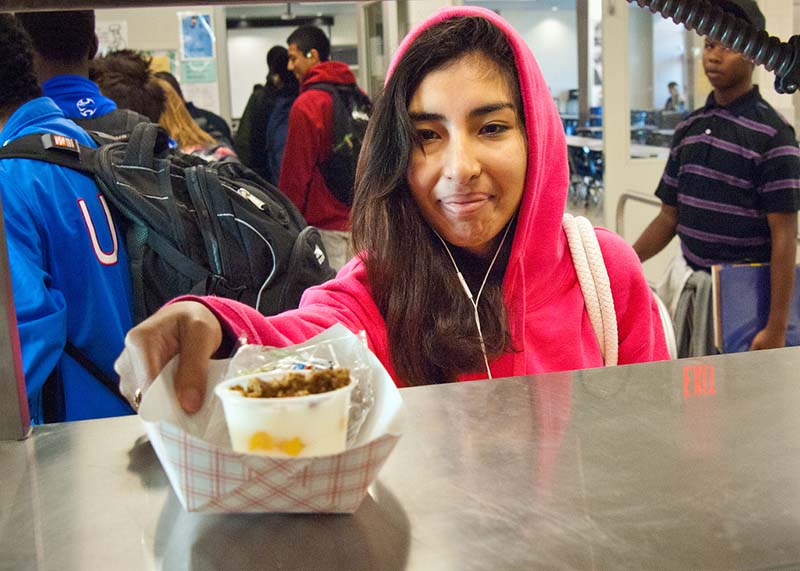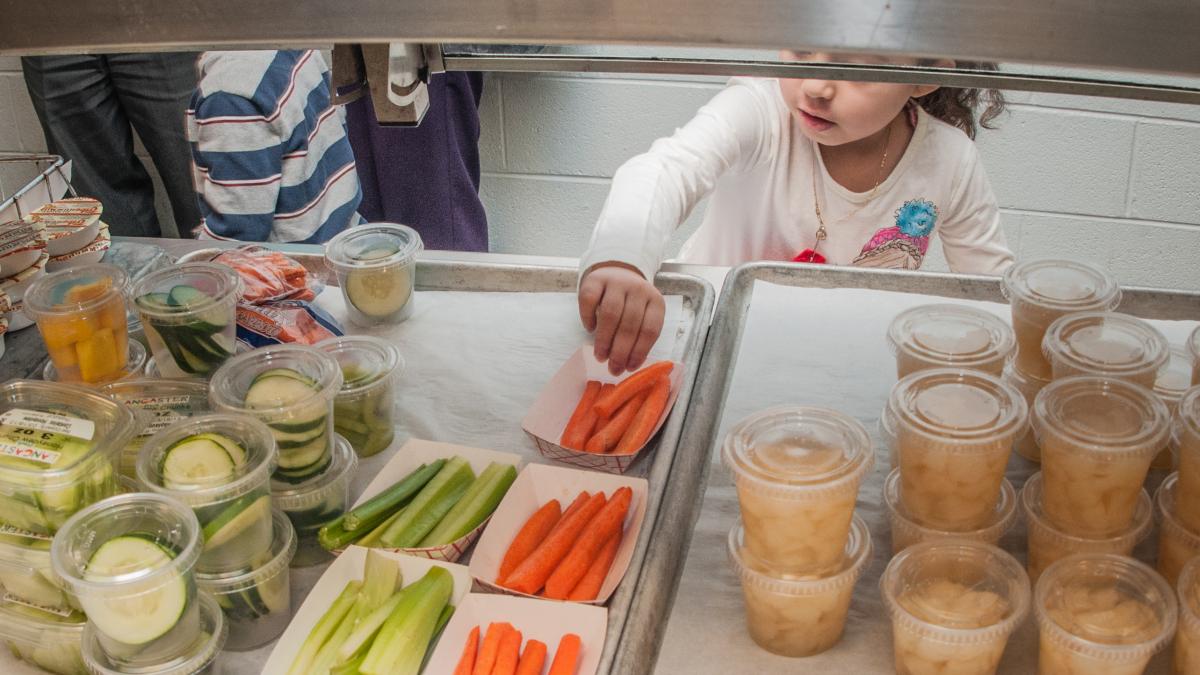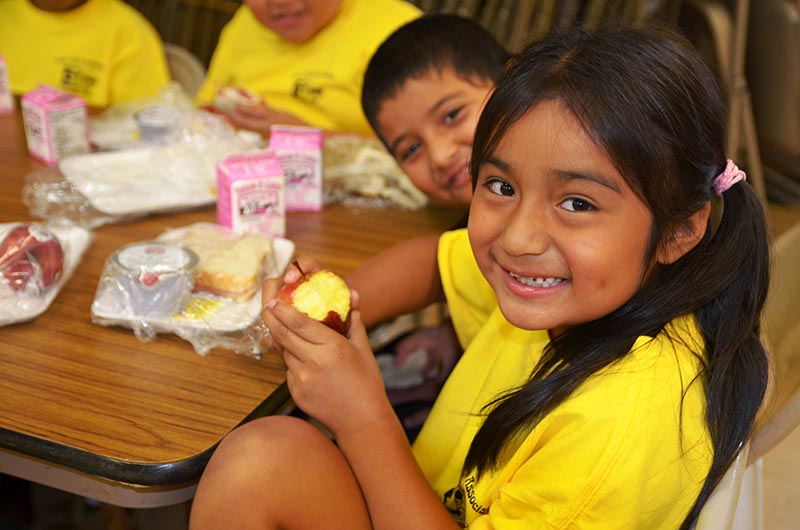Aller de l'avant avec force et diversité : Haussons la barre pour les programmes d’alimentation scolaire
Saviez-vous que le Canada est l'un des seuls pays de l'OCDE à ne pas avoir de soutien fédéral pour les programmes alimentaires scolaires ? Et que seuls 5 provinces financent une partie de ces mêmes programmes?
26 personnes provenant de 22 organisations de partout au Canada se sont réunis le 26 et 27 novembre dernier afin de changer cette situation, lors de la première rencontre en personne de la plus récente initiative du RAD - « Haussons la barre pour les programmes d’alimentation scolaire ». Ceux qui étaient présents autour de cette table pensent qu'il est temps pour le gouvernement fédéral et toutes les provinces d’intervenir afin d'aider à ce que tous les élèves à travers le Canada reçoivent la nourriture dont ils ont besoin pour bien apprendre et l'éducation qui leur permette de faire de bons choix alimentaires afin de leur assurer une vie longue et en santé.

It was an exciting moment that helped build a common vision and develop a work plan involving many stakeholders in school feeding programs, including Breakfast Club of Canada, the Foundation of heart disease and stroke, FoodShare Toronto and some Aboriginal organizations.
Through this collaboration, we have agreed to work together to achieve the commitments of adequate funding to all levels of government to establish a universal pan school feeding program, which will serve a healthy and culturally appropriate food, and whose food come from local and sustainable as possible source.

We managed to build this common vision through the wide variety of actors around the table. During the coming year, we will work together to ensure that all Canadian students have access to a school feeding program:
- is universal;
- whose costs are shared;
- support existing and various approaches to nutrition student programs;
- serve health and culturally appropriate food from local and sustainable sources whenever possible; and
- includes knowledge and food education there or what is possible.
During the meeting, we have developed several ideas on how best to advance this important issue by bringing both the strengths, partners and resources of many participating organizations. First, we will map the school feeding programs across the country stating: who finance these programs? How many children are fed? How much does it take to run these programs? What are the main business models / funding for these programs?

Then in 2015 we will begin a national dialogue to hear your views on the subject as parents, students and stakeholders of school feeding programs. What works in your community? What role do you think the government should play to help your program to reach all students, serving healthy food, and sustainable? Building on the success and the model of the People's Food Policy, we timed this national conversation to coincide with the next federal election!
Stay tuned! More information coming soon.

- Identifiez-vous pour poster des commentaires

